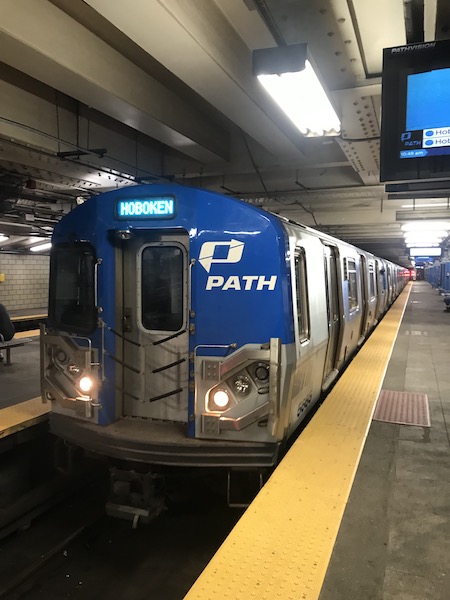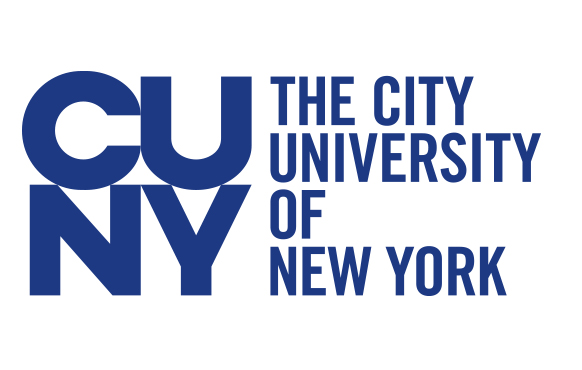JERSEY CITY, N.J.—When Superstorm Sandy hit New York and New Jersey in September 2012, the PATH train system’s maintenance crews who worked around the clock to repair the flooded tunnels had already spent a year working under an expired contract.

Nearly nine years later, they still haven’t reached a new agreement — which means their base pay hasn’t been increased since 2011.
“It’s not fair to work on wages from ten years ago,” a Brooklyn trackman who has a baby daughter due this fall told LaborPress. “I can’t support a child on that.”
PATH management has been intransigent, Transport Workers Union officials say, and a combination of federal labor law and political circumstances has enabled that. Because the trains that connect Jersey City, Hoboken, and Newark with Manhattan run interstate, their labor relations are governed by the Railway Labor Act, which prohibits workers from striking without being “released“ by the National Mediation Board.
TWU Local 2001, which represents the about 180 maintenance workers, asked to be released in 2019, saying the talks were at an impasse, but the NMB denied the request.
Health Care ‘Hangup’
Local 2001 President Pat Howard says health care is the “biggest hangup” preventing a deal with the Port Authority of New York and New Jersey, which manages the PATH trains. “They’re just not willing to negotiate on this health-care plan. They’re not willing to negotiate any part of it.”
When the contract expired in 2011, New Jersey governor Chris Christie demanded that workers contribute up to 15% of their salaries to cover insurance, says John Feltz, director of the TWU’s railroad division. The about 180 track-maintenance workers now pay nothing for premiums.
“It was beyond belief what he wanted us to pay,” says Feltz. The Port Authority came back with a lower demand in 2017, but “they refuse to consider anything else in the contract until we accept their offer on health and welfare.”
Currently, the workers have a $5 copayment for seeing a doctor and no deductible, a Local 2001 member told LaborPress. The Port Authority’s 2017 proposal, says Howard, would switch them to a PPO preferred-provider organization plan, where they’d have to pay full list price for out-of-network care. It would pay only for mail-order prescriptions, and would impose a deductible of $1,500 for single workers and $3,000 for families.
“We’re willing to pay a part of the cost,” says Howard. Union workers at other commuter railroads in the area, such as Metro North, New Jersey Transit, and the Long Island Railroad, now typically pay 1.5% to 2% of their salaries for health-insurance premiums. But Local 2001 members, he adds, are not willing “to go from a Cadillac to a rustbucket.”
“The contract offer they gave us in 2017 has remained the same until today,” says Local 2001 PATH chair Kevin Campopiano. “There’s no way I could get my membership to agree to that, and they know it.”
“We want to keep our health insurance as close to what it is as possible,” a Local 2001 member told LaborPress. “It’s not right to cut our health insurance during a pandemic.”
Two PATH maintenance workers have died of COVID-19.
“We have reached agreement with over 80% of our unionized workforce and we are confident that we will reach settlements with the remaining unions,” the Port Authority responded in a statement to LaborPress. “TWU and PATH are in active negotiations under the auspices of the National Mediation Board.”
The NMB process
The NMB process is intended to resolve labor-management disputes in railroads and airlines, with the aim of avoiding interruptions of service. If either side feels that negotiations are still at an impasse despite the mediation, it can request to be released. If the board grants relief, the sides have to wait for at least 30 days — a “cooling-off period” — before the union is allowed to go on strike or the employer can impose its last best contract offer or lock workers out.
If the NMB determines that a strike would “deprive any section of the country of essential transportation service,” it can ask the President to authorize it to name a Presidential Emergency Board. That board has 30 days talk to both parties and draft a proposed agreement. If either party rejects it, they have to wait another 30 days before declaring a strike or lockout.
Both the NMB and the PEB mediation processes can be repeated, and they often are.
The multiple unions representing New Jersey Transit workers, whose contracts also expired in 2011, went through the NMB process, but talks broke down in 2015. NJ Transit had proposed that workers’ health-insurance premiums be raised ninefold, to between $400 and $700 a month.
Two Presidential Emergency Boards named by President Barack Obama recommended a contract much closer to the unions’ offers on wages and health care, but the federal government does not have the power to impose a settlement until a strike or a lockout takes place. A deal was finally reached in March 2016, less than two days before the unions’ strike deadline.
Gary Dellaverson, the Port Authority’s negotiator, was NJ Transit’s special labor counsel in that dispute. “I hope Mr. Dellaverson will come off their position on health care,” says Howard.
PATH workers and TWU officials also feel that they will not get support from the current NMB, which has a 2-1 Republican majority, with two of the members appointed by Donald Trump in 2017.
All three members’ terms expired last November. In April, President Joseph Biden nominated Deirdre Hamilton, a lawyer with the Teamsters Union’s Airline Division, to the board, which would give Democrats a 2-1 majority. He renominated current members Linda A. Puchala and Gerald W. Fauth, who would be the remaining Trump appointee, on July 2. The Senate has not yet voted to confirm any of Biden’s nominees.
“We don’t see them releasing us until that happens,” says Feltz.
‘Working in the mud’
“My members have been very patient, but their patience is growing thin,” says Howard.
Other issues of contention include pay, work rules, and pensions. “It was a year and a half before they came around with any kind of money offer,” says Feltz.
Any agreement reached would likely raise wages retroactive to 2011. Those increases would probably be somewhat lower for the earlier years — the years when maintenance workers put in a lot of overtime because of Hurricane Irene and Sandy. But Howard says that’s typical in long-term retroactive deals, as the earlier percentage increases get compounded.
Union members say they would like a better pension. They now get $20 a month for each year they work, or $600 a month after 30 years.
The Port Authority is also not considering the sacrifices maintenance workers made by agreeing to more flexible scheduling during the pandemic, says Feltz.
Their work, repairing, installing, and maintaining the railroad’s pumps, stations, structures, and tracks, is intensely physical. Track gangs replace ties, timbers, and rails. To replace timbers embedded in concrete, they have to break up the concrete with a jackhammer, lift and install the new timbers, and then pour fresh concrete to hold them in place.
After Sandy, a track gang member told LaborPress, “I didn’t go home for three weeks straight. All the tunnels were completely flooded.”
After 10 years on the job, he makes $34 an hour. The last raise he got was in 2016, the second and last annual step increase after he was promoted.
“I love my job,” the Brooklyn trackman adds. But he also doesn’t want to have to work 60 or 70 hours a week to cover his bills.
“I want to be able to make a living for my kid and be able to see her grow up,” he says.
“We are not asking for anything the other railroads haven’t gotten,” says Kevin Campopiano. “Working in the heat, working in the mud, keeping everything running smoothly, my membership has earned the right to a fair contract.”




2 thoughts on “PATH to Nowhere: Unaffordable For-Profit Healthcare at the Heart of Decade-Old Transit Impasse”
All those workers should continue to pay close to nothing for health insurance. Half of the crap they are exposed to in those tunnels, surely heightens their risk of respiratory issues and cancer. Those tunnels are how old? The amount of asbestos alone they are exposed to puts them in great danger; nevermind all the other 100s of chemical spores that they potentially bring home to their spouses and children. And to top it off, one of the most laboring jobs. They won’t be able to even enjoy their retirement with all the musculoskeletal issues they will have. The railroad is a downright dirty and DANGEROUS job. Pay them what they and their families deserve.
I am an employee at PATH with 33 years of service, 28 of which were served under representation by the TWU. I’m currently in the IBEW which represents the foreman. What hasn’t been mentioned is the fact that in previous contracts the maintenance side of the company has agreed to a lesser percentage of pay increases because of the circumstances of our insurance coverage and costs to the company. So when the company, or anyone for that matter says that we receive FREE HEALTHCARE, it’s just not true. Our skilled workers, for example Carpenters, masons, and plumbers do not receive an hourly pay that can compare to their peers who are represented by other locals in the area. PATH however is not up to new tricks. Personally I have worked without, or under an expired contract for 18 of my 33 years. Yesssss more than half my career. To say that the moral of the MEN is low,would be the understatement of the century. It’s DISGUSTING!!